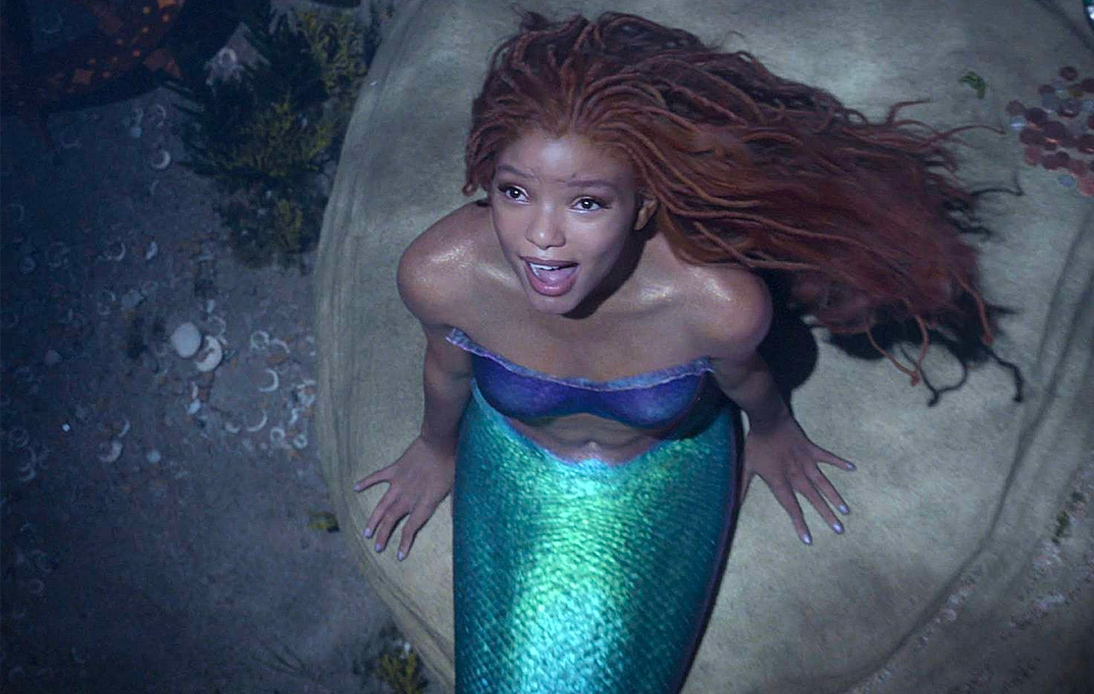
Disney’s live-action remake of “The Little Mermaid” has faced some turbulence in Asian markets, particularly in China and South Korea.
Critics and viewers in these regions have expressed disappointment and shock over the casting of Black actress Halle Bailey in the leading role of Ariel.
Despite these reactions, the film has enjoyed success elsewhere, illustrating the complexities of the global film market and cultural attitudes towards race and representation.
In China, the film has earned a meager $3.6 million since its release on May 26th, according to Box Office Mojo.
This figure is much lower than the nearly $20 million garnered by “Spider-Man: Across the Spider-Verse” within its initial five days in theaters, as reported by the Chinese box office tracker Endata.
Similarly, in South Korea, the film has only managed to amass $4.4 million since its debut on May 24th. The casting of Halle Bailey as Ariel has been a contentious issue among audiences in these countries.
This decision, however, has been met with joy and celebration elsewhere, particularly among young black girls in the United States who have enthusiastically embraced the representation on the big screen.
As Rob Marshall, the film’s director, told The Hollywood Reporter, “She immediately set the bar so high that no one surpassed it. We saw every ethnicity.”
“There was no agenda to cast a woman of colour. It was really just, ‘Let’s find the best Ariel,’ and Halle claimed the role,” he stated.
In contrast to the response in China and South Korea, “The Little Mermaid” has performed remarkably well domestically, ranking as the number two movie over the past weekend in American theaters, according to Comscore.
Globally, the film has garnered an estimated $327 million, $186 million of which was generated domestically, with the remaining $141 million attributed to international audiences.
However, the film has faced its share of challenges, including a phenomenon known as “review bombing” on IMDb. This is a practice in which users post negative reviews to intentionally lower a film’s rating.
IMDb has been forced to issue warnings of “unusual voting activity” and adjust how it calculates the ratings in response to this activity.
The discussion surrounding Bailey’s casting has permeated into online discussions. Mainland China’s popular movie review site, Douban, has the film rated at a lackluster 5.1 out of 10.
On Maoyan, another Chinese film platform, users expressed confusion and disappointment, with some making discriminatory comments about Bailey’s skin color. “The ‘Little Mermaid’ in my mind is white,” one user posted.
This sentiment has resonated across the region. In South Korea, social media users have vented their dismay, with one Instagram user alleging the movie had been “ruined” by the casting choice, using the hashtag “#NotMyAriel.”
Even in Japan, where the film has yet to debut, online forums are filled with critics mourning the departure from their cherished image of Ariel.
Echoing these sentiments, China’s state-run Global Times editorial suggested that Disney’s decision was motivated by political correctness and an attempt to force minority inclusion in classic films, labeling it a “lazy and irresponsible storytelling strategy.”
Despite the backlash in certain markets, “The Little Mermaid” has prospered in others. In the Philippines and Indonesia, the film grossed $4.4 million and $4.1 million respectively.
It was also the top film in Italy and the second most popular in Germany, the United Kingdom, Australia, Brazil, and Mexico.
Analyst Paul Dergarabedian from Comscore notes, “every movie has its own distinctive box office trajectory, unique audience appeal and within the context of the competitive and cultural landscape, will have various marketplace challenges and advantages.”
This mixed reception highlights the complex intersection of culture, race, and media, revealing the challenges of adapting classic tales for a diverse and global audience.
While the controversy surrounding the film continues, it’s clear that the conversation around representation in the entertainment industry is far from over. Disney has not commented on the criticism.





















